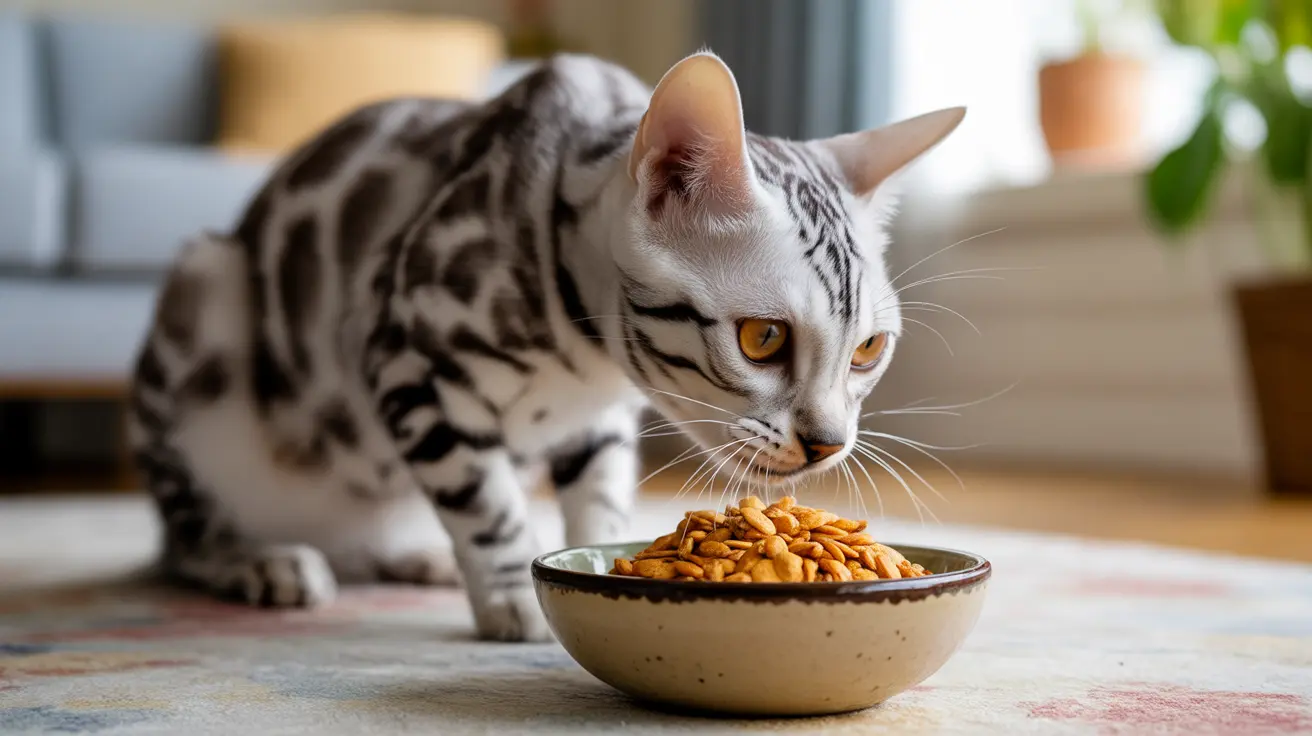Many cat owners wonder about sharing healthy human foods with their feline companions. Pumpkin seeds, in particular, have gained attention for their potential health benefits. But can cats safely consume these nutrient-rich seeds? Let's explore the facts about feeding pumpkin seeds to cats, including proper preparation methods and important safety considerations.
While cats are primarily carnivores, certain plant-based foods can offer supplementary nutrition when properly prepared and served in moderation. Pumpkin seeds fall into this category, providing they're prepared correctly and offered in appropriate amounts.
Benefits of Pumpkin Seeds for Cats
Pumpkin seeds contain several nutrients that can benefit feline health when served appropriately:
- Healthy fats for energy and coat health
- Essential minerals like zinc and magnesium
- Protein content that complements their diet
- Antioxidants for immune system support
Nutritional Value and Health Impact
When properly prepared, pumpkin seeds can contribute to:
- Digestive health through fiber content
- Urinary tract health due to zinc and fatty acids
- Overall immune system support
- Potential anti-inflammatory benefits
Safe Preparation Methods
Proper preparation is crucial for feeding pumpkin seeds to cats safely:
Cleaning and Roasting
- Clean seeds thoroughly
- Roast at 350°F (175°C) for one hour
- Avoid adding salt, oil, or seasonings
- Allow to cool completely
Grinding and Serving
Never serve whole seeds to cats. Instead:
- Grind seeds into a fine powder
- Store in an airtight container
- Serve no more than 1/8 teaspoon per day
- Mix with regular food if desired
Potential Risks and Precautions
While pumpkin seeds can be beneficial, there are important risks to consider:
- Choking hazards from whole seeds
- Digestive issues from overconsumption
- Possible allergic reactions
- Risk of intestinal blockage from shells
Signs to Watch For
Monitor your cat for these symptoms after introducing pumpkin seeds:
- Vomiting or diarrhea
- Lethargy
- Loss of appetite
- Unusual behavior
When to Avoid Pumpkin Seeds
Some cats should not consume pumpkin seeds, including:
- Cats with sensitive digestive systems
- Those with certain medical conditions
- Cats on specific dietary restrictions
- Kittens under one year old
Frequently Asked Questions
Can cats eat pumpkin seeds safely, and how should I prepare them?
Yes, cats can safely eat pumpkin seeds when they are cleaned, roasted without seasonings, and ground into a powder. Never serve whole or raw seeds.
Are pumpkin seeds beneficial for my cat's digestive and urinary health?
Pumpkin seeds can support both digestive and urinary health due to their fiber content and essential minerals, but should not replace veterinary treatment for specific conditions.
How much pumpkin seed can I give my cat without causing harm?
Start with no more than 1/8 teaspoon of ground pumpkin seeds per day, and monitor your cat's reaction. Adjust the amount based on their tolerance.
What are the risks of feeding whole pumpkin seeds or pumpkin seeds with shells to cats?
Whole seeds and shells pose serious choking and digestive blockage risks. Always remove shells and grind seeds before serving to cats.
Can pumpkin seeds help with parasites in cats, and can they replace deworming medicine?
While pumpkin seeds have traditional use as a natural dewormer, they should never replace proper veterinary treatment for parasites. Always consult your veterinarian for parasite control.
Remember to always consult with your veterinarian before adding any new food to your cat's diet, including pumpkin seeds. This ensures the safety and appropriateness of the addition based on your individual cat's health needs and conditions.






